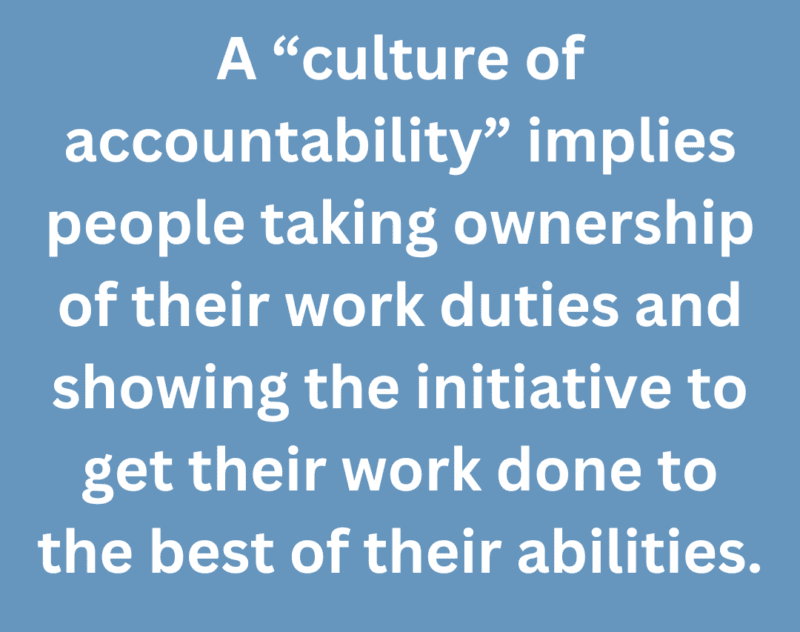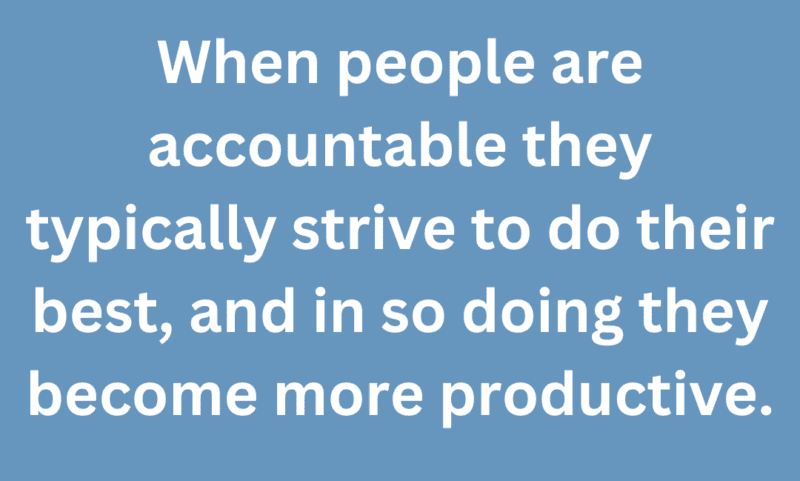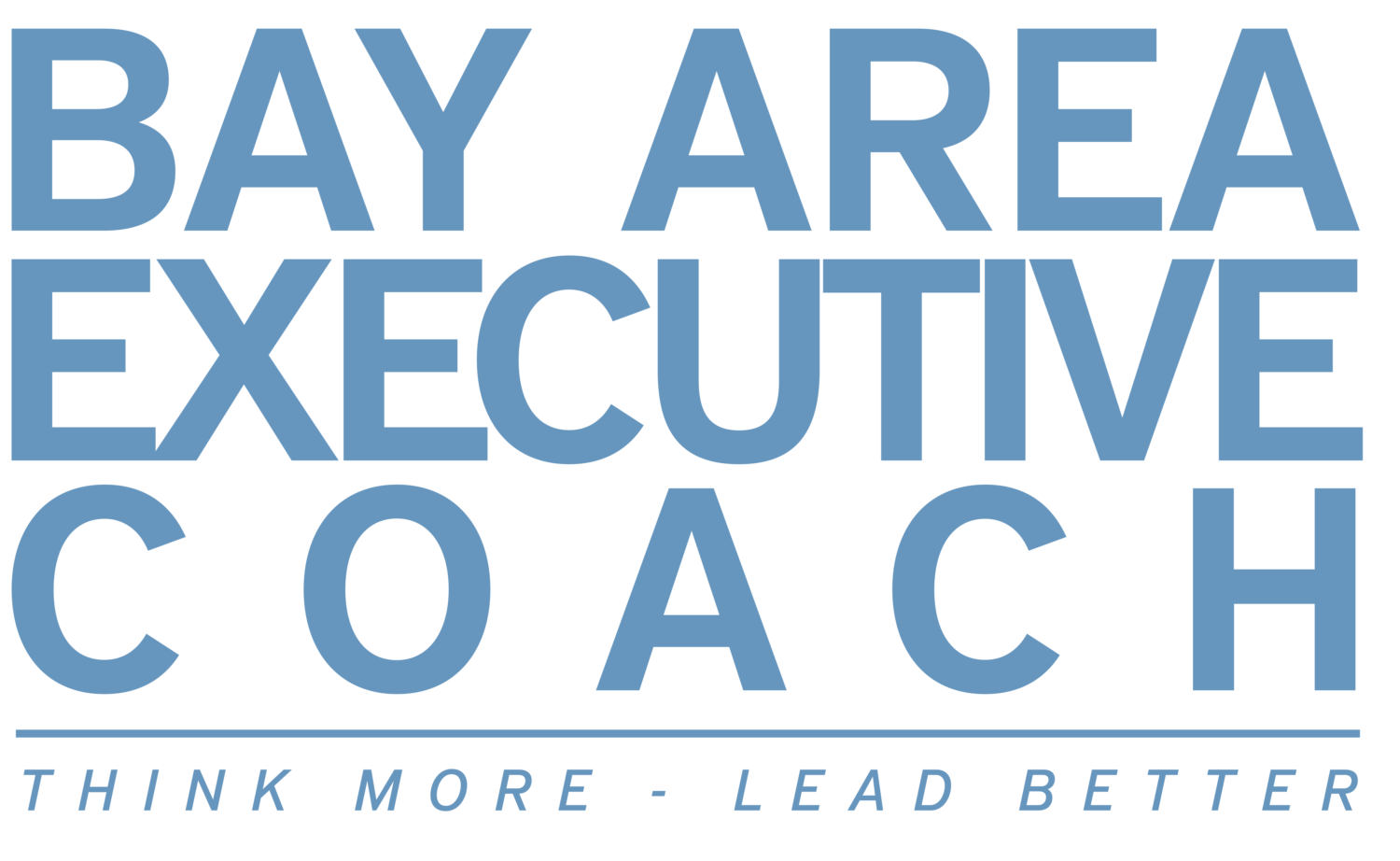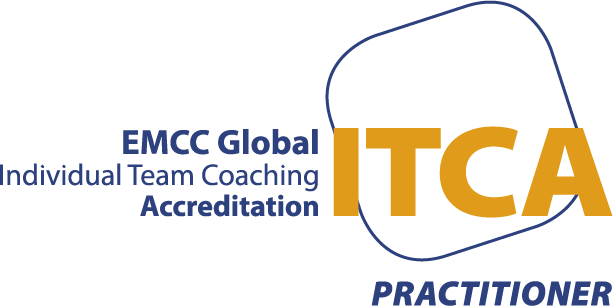A “culture of accountability” implies people taking ownership of their work duties and showing the initiative to get their work done to the best of their abilities. This is the ideal state leaders are seeking in any organization.
The Benefits of Accountability
Accountability suggests that people are invested in the work they do. They care about the results because those results reflect their level of investment in the work. When people are accountable they typically strive to do their best, and in so doing they become more productive. Accountability therefore relates directly to increased productivity. Other benefits of accountability include: 
- It’s more likely all the work gets done. Because in a culture of accountability, everyone knows their role and what’s expected of them, fewer tasks fall through the cracks. There’s less assumption that “someone else is doing the job” in question. Accountability breeds more assurance that all the work gets done.
- Challenges are better met. Accountable employees tend to respond to challenges by working more creatively towards solutions, a process that stokes problem-solving skills and innovation.
- It fosters an environment of reduced office conflict. In a company with a culture of accountability, people are less inclined to shift blame to others when things go wrong, thereby reducing the likelihood of office conflicts arising. People are also compelled to own up to their errors and oversights and are more motivated to learn from their mistakes because their future performance reflects directly on them and not others. A secondary reason for reduced conflict is the willingness of people to be held accountable without becoming defensive and creating tension.
-
- It promotes the growth of skills. Accountable employees tend to work harder and cover more ground, which contributes to one’s ongoing growth and development in the role.
- Succession planning is made easier. When employees are accountable and committed to doing their best work, they show themselves as being eligible to do more and be more. Accountability may create a pipeline of people who can succeed their leaders.
Tips for Building a Culture of Accountability 
Embedding accountability into a business culture requires consistency, patience, and total buy-in from management and employees. Accountability doesn’t happen overnight but is steadily developed. Those employees who are unwilling to be accountable may find they would be better off somewhere else and would be replaced by new team members who embrace accountability. A long-term approach is essential. Once you’ve made the commitment, here are some proven ideas for building your organization’s accountability culture.
- Set clear expectations: Stress the importance of setting clear expectations for employees. Employees are more likely to be accountable when they know what are the results they are aiming for. This is critically important and every leader who assigns work to another must do so with absolute clarity.
- Engage employees in goal setting: When you work with employees in setting their performance goals—as opposed to simply assigning them—you’re more likely to inspire personal accountability. In a similar way, when you offer learning and development opportunities at the employee’s request, they assume accountability for taking advantage of those opportunities, much to the benefit of all parties.
- Provide the necessary knowledge base: You can’t hold someone accountable for a task or assignment when they lack the knowledge or skills required to perform that task. Therefore, ensure employees have the resources and training they need to do their work. Whether it’s training classes, software, mentoring, or training manuals, employees who have the resources to perform their best will be more likely to accept accountability for the results.
- Foster a sense of safety and stability: A common reason some employees are reluctant to take on accountability is their fear of failure: a fear of disappointing their boss or, worse, of losing their job. Fear can lead to procrastination and an unwillingness to turn something in because it’s not perfect yet. To inspire accountability, treat failure as an acceptable part of the process of learning and improving. Create an environment where it’s OK to fail if that’s what it takes to ultimately succeed. Turn failure into a growth opportunity that provides insight for improvement and opens up new learning opportunities.
- Improve your feedback process: Creating a culture of accountability necessitates honest and frequent employee feedback. Communicate with employees openly about their challenges, successes, concerns and suggestions. And don’t forget that feedback is a two-way street. In addition to giving feedback, ask employees for their feedback concerning your performance as their boss.

- Hire the right employees: Work to identify candidates during the interview process who express their belief that accountability is something they believe in and fully support. Explain how accountability is central to your business culture and how everyone is held accountable for their job performance. As mentioned earlier, the organization may find it necessary to release those who don’t believe in a culture of accountability. They will be replaced by your new hires that do.
- Show leadership: Showing leadership sets a good example for your employees, prompting them to emulate your positive behavior. Make accountability a pillar of your leadership style and that trait will inspire your team to do the same.
Personal accountability must be developed throughout all levels of an organization for building a culture of accountability that lasts. Building accountability into your business culture will improve employee engagement and performance and, ultimately, the success of your organization.
••••
If you’re striving to put accountability into your workplace but find the process challenging, we offer solutions built around a proven CAN DO framework. To find out about CAN DO, and to learn about our entire range of executive leadership coaching services, schedule a meeting time through our calendar or complete our contact form.
Interested in learning more about success in management and leadership roles? Read out article on “Delegation Part 1: Why Won’t Leaders Delegate?”
Here are more resources related to this topic
Articles:
- Leading by Example: How Leaders Can Shape Their Organizational Culture
- The Role of Team Training in Building Company Culture
- Creating a Culture of Coaching in an Organization
Guide:
Videos:
- Five Steps to Greater Accountability in Your Organization
- Don’t Panic! How to Stay Accountable in 6 Common Tough Situations as a Leader
- Accountability in Email and Working With Friends!
- Do you have Accountability in Your Organization?
Photo copyright: Featured photo is from ©Alexander Suhorucov via Pexels. Secondary photo is from ©Mikhail Nilov via Pexels.




















